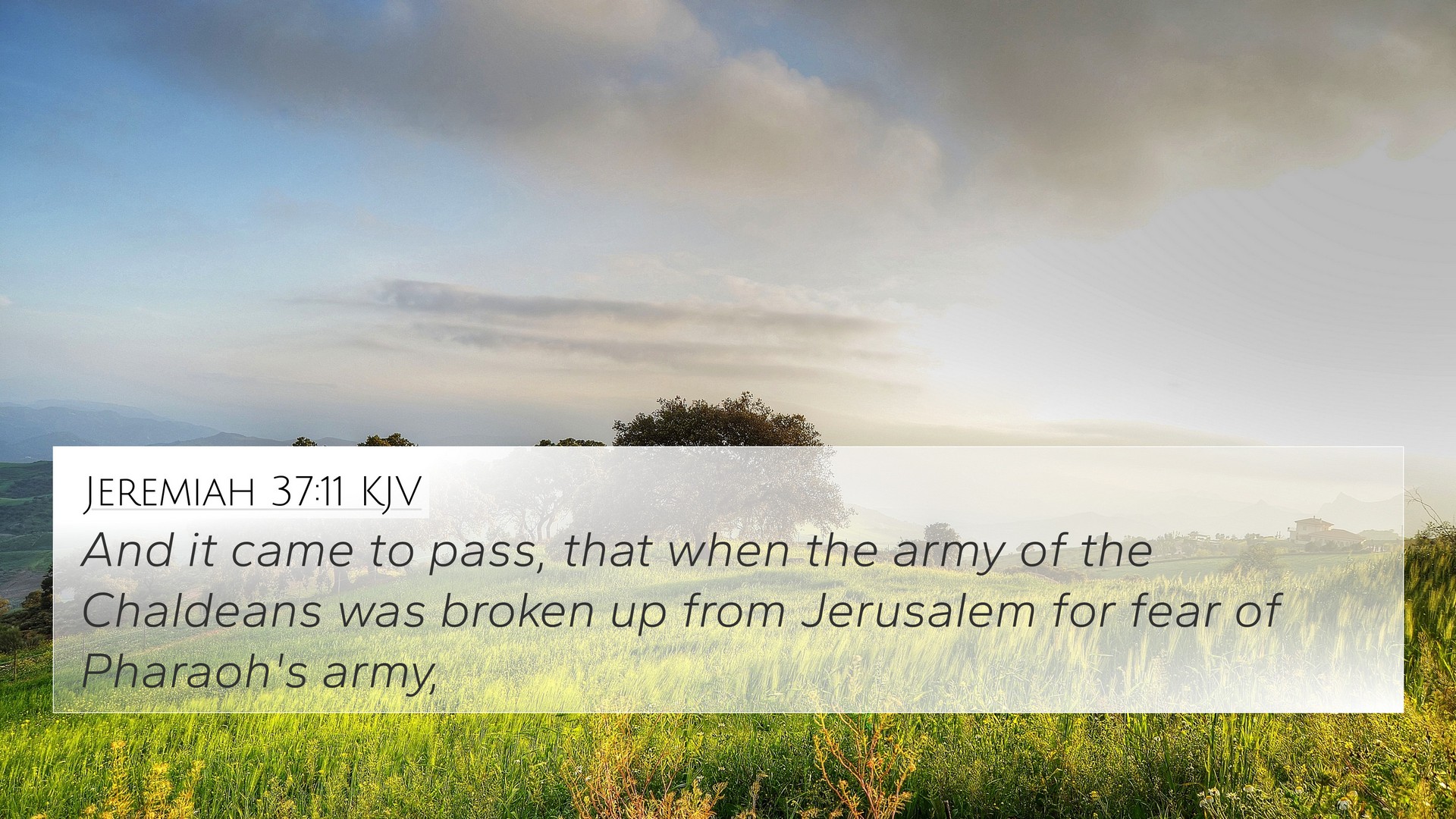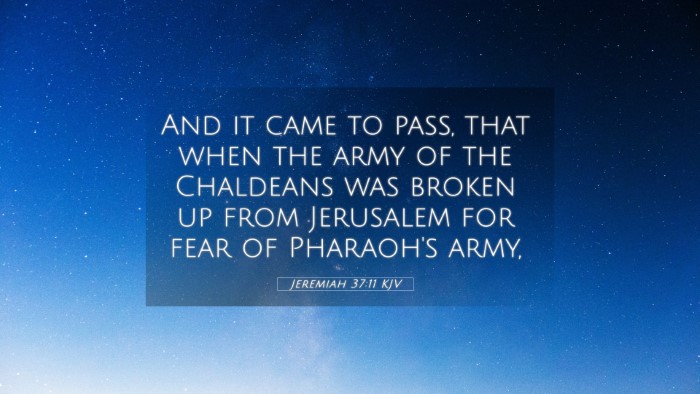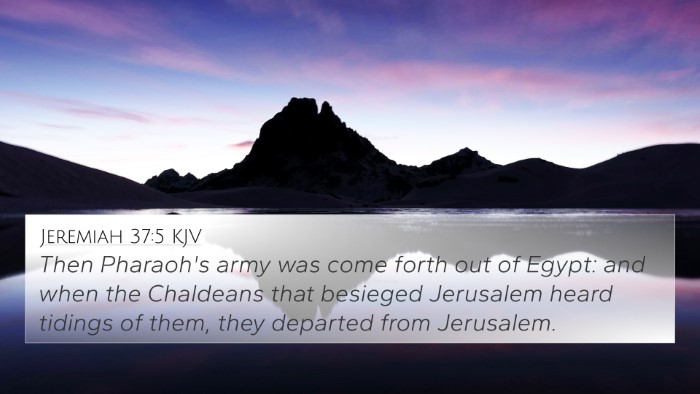Understanding Jeremiah 37:11
Jeremiah 37:11 states, "Now when Jeremiah had come out of Jerusalem to go into the land of Benjamin to separate himself there, he was locked up." This verse relates to the broader themes of imprisonment, prophecy, and the struggles faced by the prophet Jeremiah during a tumultuous time in Israel's history.
Context and Overview
In this passage, Jeremiah is seen attempting to leave Jerusalem amid significant conflict, showcasing his desire to escape the surroundings that had become hostile towards him due to his prophecies. The act of separating himself to the land of Benjamin reveals the political and social tensions of the time, where prophets often faced persecution for their messages.
Biblical Insights
-
Matthew Henry's Commentary:
Matthew Henry emphasizes that Jeremiah's attempt to exit Jerusalem illustrates the consequences of his prophetic mission and the opposition he faced. His journey to Benjamin represents a longing for peace amidst the chaos surrounding him.
-
Albert Barnes' Notes:
Barnes elaborates that this act of leaving Jerusalem signifies not just a physical escape but also a spiritual separation. Jeremiah’s role as a prophet was vital, yet often lonely, reflecting the broader theme of the struggle between God's messages and human resistance.
-
Adam Clarke's Commentary:
Clarke points out that Jeremiah’s arrest underscores the severity of his circumstance. The text highlights how prophetic voices like Jeremiah were not only unaccepted but actively opposed, showing how critical his role was in unfolding God's plan despite the threats against him.
Key Themes
Several themes are evident in Jeremiah 37:11, including:
- Persecution of Prophets: The ongoing struggle faced by those delivering God's message.
- Isolation: The physical and emotional separation from society that comes with following God's call.
- Obedience vs. Safety: The tension between obeying divine instructions and seeking personal safety.
- The Role of the Prophet: Understanding the responsibilities and dangers faced by biblical prophets.
Cross-References
Jeremiah 37:11 connects with several other Bible verses that illuminate its meanings and themes:
- Jeremiah 20:2: Jeremiah is beaten and placed in stocks, demonstrating the hostility he encountered.
- Jeremiah 15:10: Jeremiah’s lament about his role as a prophet, expressing feelings of isolation.
- 2 Chronicles 36:16: The people's rejection of messengers sent by God reflects the opposition faced by prophets.
- Ezekiel 3:7: Ezekiel also faced similar rejection and hard-heartedness from the Israelites.
- Matthew 5:10-12: Jesus speaks about the blessedness of those who are persecuted for righteousness, paralleling Jeremiah's experiences.
- Luke 11:49-51: Jesus references how prophets are sent yet rejected, further establishing the pattern seen in Jeremiah's life.
- Hebrews 11:36-38: This passage discusses those who suffered for their faith, akin to Jeremiah's own trials.
Conclusion
In summary, Jeremiah 37:11 elucidates the trials faced by prophets and embodies the struggles inherent in maintaining faith during tumultuous times. This verse invites reflection on how individuals today may face opposition when sharing truth and highlights the prophetic tradition's enduring legacy.
Further Study
For those seeking deeper understanding and thematic connections, exploring the following tools and methods may be beneficial:
- Utilizing a Bible concordance to find related verses that echo the themes in Jeremiah.
- Implementing a Bible cross-reference guide for comprehensive insights.
- Engaging in a cross-reference Bible study to explore parallels across both Testaments.
- Investigating inter-Biblical dialogue for thematic study connecting prophets and apostolic teachings.
Understanding Jeremiah 37:11 within its broader biblical context, including its connections to other verses, provides valuable insights into the faith's historical landscape and the enduring challenges faced by those who stand firm in their beliefs.



